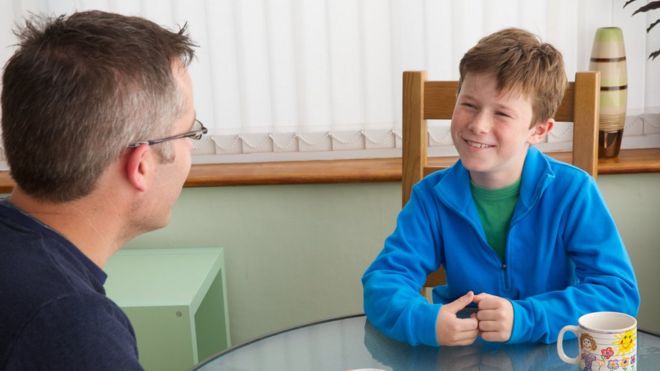
Too many young people in care in England are missing out on the support from independent mentors to which they are entitled by law, says Barnardo’s.
The 1989 Children’s Act says councils must appoint volunteers to “visit, befriend and advise” children in care if it is in their best interests.
But research by the charity last year suggested only 3% of looked-after children were matched with a mentor.
Council bosses said there was an urgent need to recruit more volunteer mentors.
Independent mentors are unpaid and work independently of social services to build trusting and positive relationships with the children they are allocated.
The idea is that they remain consistent, not changing when placements or social workers change, sharing trips and activities and sticking up for children to ensure their rights are respected.
Researchers for Barnardo’s and the Tudor Trust grant-making charity sent out Freedom of Information requests to 152 local authorities in England.
Responses from 149 of them showed:
- 2,200 looked-after children were matched with a mentor – 3.2% of the population
- 1,000 children were on a waiting list for a mentor and two-thirds of local authorities had waiting lists
- Eight local authorities said they did not have an independent mentor service
The report notes that a waiting list for the service may not necessarily indicate a problem – but rather that social workers value the service and are keen to refer children to it.
When councils were without waiting lists, this was often because social workers were unaware of the service or it did not exist at all, the report found.
Solomon’s story
“They work really hard to match you with someone who fits your interests,” says 18-year-old Solomon from London.
“I love acting, music and performing and so does [my mentor] Drew.
“When we first met at my foster home we found a lot of common ground… we both felt comfortable straight away.
“I know I can confide in Drew with any issues that I might have and he’ll do his best to understand and talk about his own experiences. Even though we only meet once a month, it’s enough for us to keep up-to-date.”
Solomon has applied for a place at the Academy of Contemporary Music in Guildford and has two part-time jobs over the summer.
“I like going out with Drew because it’s different to being out with my teenage groups of friends and it’s often in a new kind of social environment.
“To be a good independent visitor, you just need to be yourself and not try to be a social worker. Drew is very straight up and real and I respect that about him. He’s very understanding and, even if he doesn’t agree with something, he’s always open-minded.
“I hope we’ve built up enough of a relationship to carry on meeting as I get older. There are a few people who I plan to repay in the future, no matter what’s going on in my later life, and Drew is one of those people.”
Barnardo’s is urging councils to sign up to a new set of quality standards for independent mentors.
These include:
- Ensuring children in care understand their right to a mentor
- Putting children’s needs first with regular monitoring
- Safe and transparent recruitment processes for volunteers who should commit to at least a year of regular visits
- Thorough training and support for volunteers
- Adequate resourcing
- A clear, simple and effective complaints procedure
“Every single child needs an adult they can trust, who will be there for them and stay by their side no matter what life throws their way,” said Barnardo’s chief executive Javed Khan.
In particular, Mr Khan said he wanted the government to ensure mentors were in place for young people who were at risk of dropping out of education, training or employment.
“A key aim of the government’s new strategy for care leavers is to support them into adult life.
“Providing enough mentors and signing up to the new, quality standards for independent visitors will help it achieve this.”
Volunteer call
The Department for Education said it trusted councils to manage their budgets and decide which services to provide to best meet the needs of the children in their care.
“The law is clear that local authorities must appoint an independent visitor where it’s in a child’s interest and they want one.
“Not all children in care will need or want an independent visitor but this should be kept under review by the child’s social worker and Independent Reviewing Officer,” said a DfE spokesman.
The Local Government Association agreed mentors could often provide valuable extra support to children in care.
But Roy Perry, chairman of the LGA’s Children and Young People Board, said it was right that social workers considered each case individually.
“There is an urgent need for more volunteers to take on this hugely rewarding role,” he added, urging anyone interested to contact their local council.
[Source:- BBC]








